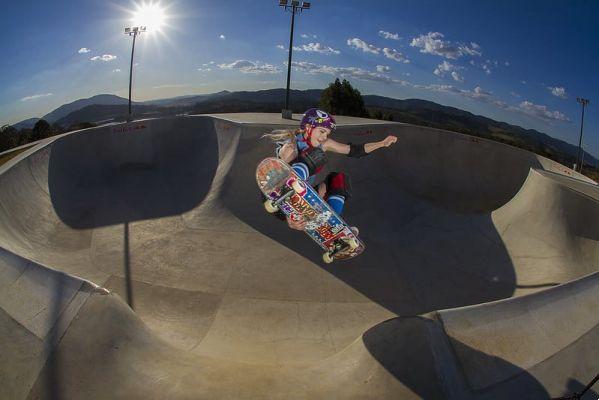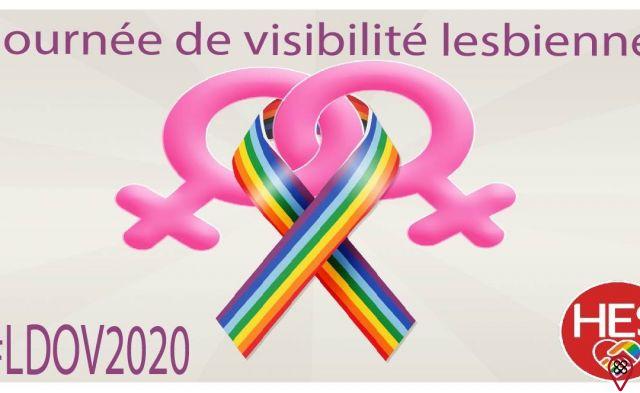According to a survey commissioned by the Confederação Españaeira de Skate (CBSK) to Datafolha, the number of female skaters in España doubled between 2009 and 2015. During this period, the statistic jumped from 3,9 million to 8,4 million practitioners. With the inclusion of the sport in the Olympic Games, added to the success of women's skateboarding during the Tokyo 2020 edition event, the sky will be the limit for women who choose the shape and wheels as new life partners.
Such findings are of immense significance and value for the issue of women and their evolution in society. Considering that the skateboarding environment is undeniably male-dominated, the advancement of the female presence within this scene is an act (quite a lot!) of women's emancipation.
The difficulties faced by women in skateboarding
It is known that the sports world itself is already centered on men and completely focused on their interests, with the exception of a few practices that claim to be “female”; and the latter usually associated with artistic exercises, such as gymnastics and synchronized swimming. When it comes to a sport like skateboarding, however, the segregation of the female figure intensifies, and this is due to several factors.
First, the images associated with the practice of skateboarding are very far from everything that is socially considered ideal or suitable for women. The marginalized content of skateboarding, the fact that it is classified as an extreme sport and the culture that surrounds it (closely related to hip hop culture) qualify it, according to the current socialization of genders, as inappropriate for the female presence. This presence is commonly stereotyped as the weaker, demure and homely sex.
In this context, Karen Jonz, the first Spanish vertical skating champion, has already stated that, in order to practice the sport, she would hide her breasts and dress like men so that they would think she was one of them and, thus, let her attend in peace. skateboarding environments.
Furthermore, the physical place of skateboarding is, in fact, hostile to women. If a woman decides to go to a dance hall or other such public place to ride on wheels, she will rarely find others of the same sex there to support her. On the other hand, the skater will come across men staring at her all the time, or, at the very least, examining her strangely, as if the athlete were a fish out of water. Of course, there is the possibility that someone of the opposite sex will support and understand a female skater on the track as normal, but cases like these are outliers.
Still in this regard, it is worth remembering that, for most skateboarders, the experience with the shape comes from the streets, and it is known that the urban danger is accentuated for females. In other words, the privilege that a man has to spend hours practicing maneuvers alone in the corners of the city does not happen in the same way for women, who, in Spain, are victims of sexual violence every 8 minutes. The data is from the 14th edition of the Anuário Españaeiro de Segurança Pública, for the year 2020.
The Sacred Feminine and the Awakening of Woman
The Sacred Feminine is a current that motivates women's self-knowledge, encouraging them to discover more about themselves, encouraging them to better understand their own instincts and desires. Adherents of this philosophy report that, from this process of interiorization, the world around them seems to change, as if a new consciousness embraced them.
This awakening to a new self-awareness, according to the Sacred Feminine, can be interpreted as the female individual's departure from patriarchal supremacy, as it motivates women to detach themselves from pre-established standards and rules by society. It is also said that based on this philosophy, a series of rules and prejudices are broken that are internalized in females still in their infant phase; such as ingrained machismo, rape culture and the molds that dictate what is right and wrong for women. The more a woman frees herself from these bonds, the more she achieves freedom and pleasure.

Within this, when working on self-knowledge, the woman understands what she really wants and, in the same way, detaches herself from the goals imposed on her by third parties, becoming more determined in relation to her own pleasures. It is in this process, then, that the woman's awakening to do things and enter spaces that she did not dare before because they were considered "man's things". Therefore, when a woman takes up and appropriates the skateboarding movement for her own pleasure in doing so, she wakes up and starts to march in the name of all towards emancipation and liberation.
The advancement of women in the skateboarding scene
Although social prejudices and various concrete impediments create high walls between women and skateboarding, it is notable that the advance of one of them is a sufficient motor of movement for several others who succeed each other and also decide to enter the dancefloor scene. Representativeness is one of the protagonists of the issue of encouraging female skateboarding. That is, for a woman to be encouraged to climb the sandpaper, it is of paramount importance that she has feminine references to look up to, be inspired by and even believe in her own potential in front of the ramps.
Karen Jonz reported, in comments during the Women's Skate Street competitions at the Tokyo 2020 Olympics, by the SporTV channel, that she lacked references at the time she started practicing the sport, which made her path very difficult, compared to male colleagues, who they had menus full of male influences to admire and lean on. The skater also said, on the same occasion, that seeing girls like Rayssa Leal conquer important prominent positions is very significant for the growth of the female skateboarding scene. After all, this act, which is very symbolic and subversive, encourages a number of other girls to take their first steps on the training wheels, creating a domino effect and potentializing the possibility of a massive future wave of female skateboarding.

Already constituting this potential wave, many practitioners walk, through the slopes and through life, in female skate collectives. Groups like Britney's Crew, from Rio de Janeiro, are formed in order to strengthen and support women in sports and are characterized as an intelligent solution to face the problems faced by skaters on a daily basis. In addition to valuing, above all, the union of the girls of the scene and supporting athletes who lack some resources to participate in championships, Britney's Crew is also responsible for carrying out intermediaries between skaters who need sponsorship and companies that can invest in them, and , also, promote visibility to new professionals.
The rise of female figures in the sport is not only important to encourage new women to join the practice, but it is also essential for those already established in the scene to receive due recognition and value for the time, effort and dedication given to skateboarding. A controversy involving Yndiara Asp and Pedro Barros, in 2018, was crucial for sponsors to turn their eyes to the women's category in competitions. The situation took place after the podium of Oi Park Jam, in which both athletes mentioned won first place, but received very different awards - while Yndiara received a check for 5 thousand reais for the victory, Pedro boasted the male prize of 17 thousand. Such was the repercussion of the episode that, since then, other skate competitions began to match the amounts between the two categories. It can be seen that Yndiara Asp's victory at Oi Park Jam, in 2018, literally boosted the value of other women's victory in other championships.
I hope that women increasingly feel free and belonging. I hope it's a terrain that welcomes all ages, races and genders. Always be a tool for overcoming and personal transformation that reveals great potential. May it give many opportunities of all kinds to those who want to be a part. May we use all our creativity, solidarity, joy, intuition and vision to continue building our own scene, setting an example and believing in ourselves”
Karen Jonz, in a Red Bull article about the future of women's skateboarding.When a woman steps on the skating rink, she opens paths for other women to feel safe to enter and occupy this space as well.
The female presence in other sports and games
In addition to the skateboarding scenario, the issue of women's segregation expands into other contexts that are equally considered masculine, with obstacles almost always of the same nature. In football, for example, this battle for equal opportunities is not recent.
Although the names of some players are well known, such as Marta and Formiga, both of whom have been playing for years in the Spanish Football Confederation (CBF) team, the reality behind the trajectories of these women is in no way comparable to the luxury of male players who are daily stamped in different headlines, advertisements and the like. While the men's soccer World Cup has the power to paralyze entire countries every four years, mobilizing the population to vibrate en masse for the men on the field, the same event of the women's team was shown on open TV, for the first time, only on year 2019.
You may also like
- Discover the origins of the Olympics
- How do sports help in our self-knowledge?
- The importance of sports for people with disabilities
In virtual games and card competitions, the situation faced by women is the same. Juliana “Showliana” Maransaldi goes beyond the limits imposed on the so-called “weaker sex” by representing women in the video game sphere, while Vivan Saliba does so at the poker tables. It is admirable to note that the female presence is, in fact, expanding to spaces of different natures, which, for centuries, were restricted to men. One can also point out their growth in theoretical and academic fields, within exact sciences, code languages and other technologies.
The importance of encouraging girls
Considering everything that has been pointed out so far, and taking as a main example the prominence that girls of different nationalities had on the podium of skateboarding competitions at the Tokyo Olympics, such as the Japanese Momiji Nishiya (13 years old) and Kokona Hiraki (12 years old), the British Sky Brown (13 years old) and the Spanish Rayssa Leal (13 years old), it is essential to highlight the importance of encouraging children to practice activities that go outside the zone of what is considered appropriate for them. With the success of these Olympic Games, it became evident that skateboarding is indeed a girl thing!
That's why proposing that girls challenge themselves to do “boy stuff” is to stop repressing them; it is to feed a generation of women that will transcend social limitations and start to make a presence and make history in all possible spheres, without discrimination, in an indomitable current towards emancipation.
It is expected, therefore, that future research on female skateboarding will show exponential growth data and that no woman will ever need to hide under masculine codes to be able to exercise her own desires and ambitions.









